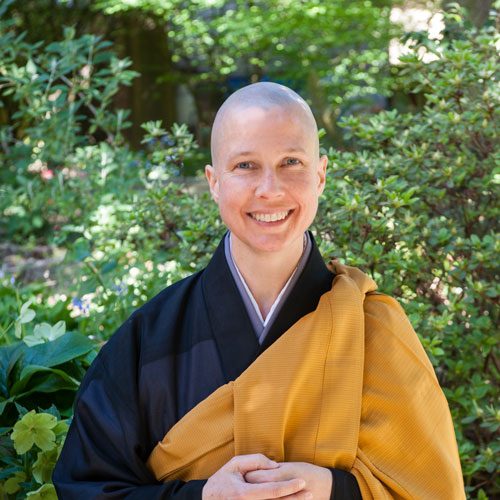Eros is life force, the energy that animates our being. Eros fills our spiritual life with vitality, our minds with creativity, our ideas with embodiment and our relating with rich intimacy. To live full lives we need access to eros; without it we become dry, rigid, flacid and withholding. Yet what place does it have in dharma practice? Traditional teachings caution us when it comes to desire, and the erotic is rarely mentioned in a positive light. This Sunday we’ll explore how to engage eros and desire in a deepening practice of insight and understanding, one that is rooted in the body and in service to life.
With Justine Dawson recorded on May 9, 2021.
Found our teachings useful? Help us continue our work and support your teachers with a donation. Here’s how.
Discover more from the Dharma Library
-

A Return To Naturalness
Recorded :
September 29, 2024 From pure emptiness the wondrous appears… In the session we will explore different somatic approaches to cultivate a sense of calm and ease. An invitation into insight meditation and letting go into a natural state of flow.
-

What Can I Do to Help?! I’m At My Limit!
Recorded :
May 15, 2022 Sometimes as much as we want to help, we feel stuck. When we see children suffering and grandmothers crying in Ukraine, our hearts break, but the enormity of suffering feels like more than we can bear. How can we meet this wall, especially when our own personal resources are low? In this talk, I’ll teach…
-

Let’s Talk about Meditation
Recorded :
November 22, 2019 This class is an opportunity to explore our meditation practice, on and off the cushions. Meditation can be everything we do. It’s up to us whether we have a life of meditation or a life of daydreaming. Meditation will lead to freedom of your mind and daydreaming will lead to the enslavement of the mind….
-

The Wisdom of the Body
Recorded :
March 8, 2020 If you seek to deepen in your meditation practice, there is no better friend than the body. Like a venerable teacher, the body has the power to draw you into the present moment, show you how to find stillness and even—if you listen closely—wake you up.
-

Daily Meditation Recordings, with Martin Aylward – Week of June 8
We’re fortunate that Martin Aylward has generously offered to lead our daily meditation sessions for Europe and the UK this week. Links mentioned during these sessions can be found at the bottom of this page. To find out more about Martin, and view his other recordings on the platform, click here. Due to temporary circumstances…
-
“Meditation instructions getting in the way” and “Recollective awareness meditation”
Recorded :
June 21, 2015 -

Trust and Surrender: Meeting Life Fully
Recorded :
November 5, 2023 As we move through life, we meet change, obstacles and beauty, hardships and love, praise and blame, and all the rest of the winds of life. Our question is then how to meet life with a sense of trust in the unknown and find a place where we can meet it all with more ease and…
-

The Practice of the Beautiful: Moving Beyond Fragmentation and Stability
Recorded :
June 2, 2024 Allowing the beautiful to guide us in our practice opens up possibilities beyond our conditioned habits. Awakening to beauty involves being with the messiness and the challenges of our lives. Beauty does not belong to anyone. As we orient away from that which is pleasing to that which is beautiful in ourselves and in our communities, we align ourselves with a path that blossoms into liberation for all beings.






